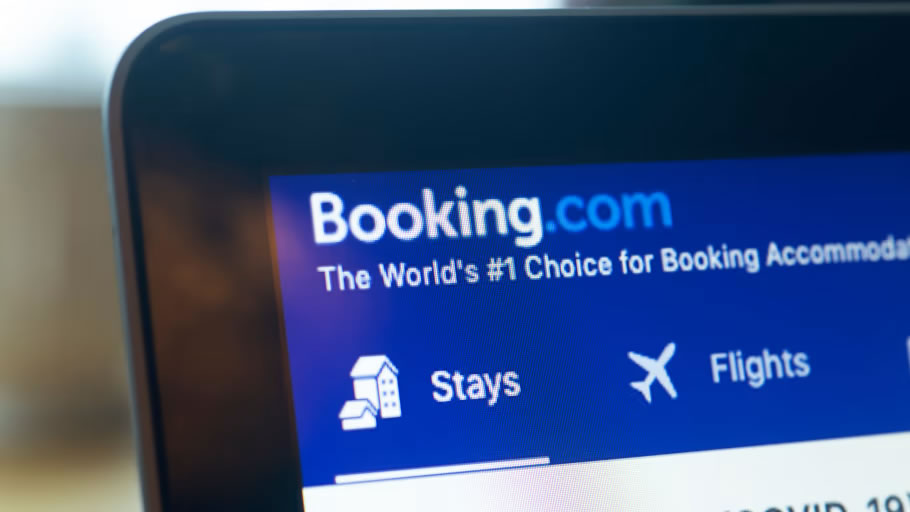Many timeshare owners are becoming increasingly agitated at seeing so-called 'exclusive' resorts available to members of the public on booking sites like Booking.com and Expedia.
Timeshare may well seem a bit old fashioned to the modern holidaymaker, but they arrived back in the 1980s to take on a very real problem. Many people remember hearing about 'holidays from hell' in the media. These typically involved hotels that looked stunning in the brochure but were far more disappointing upon arrival.
Holidaying families would be bitterly disappointed when they turned up to essentially find building sites or old apartments that were falling apart instead of the beautiful hotel or apartment they had been promised in the travel agent brochure.
Many would simply have to do as best they could to enjoy their holiday, deciding that it was only a place to sleep after all and that they would be out at the beach anyway during their holiday on the Canary Islands and Spanish Costas.
But it was these people who became the ideal targets for costly timeshare deals.

At the end of the 1990s, there were touts in many of the most popular holiday destinations in Europe, using high-pressure sales tactics to encourage holidaymakers to sign up for their timeshare contracts.
They enjoyed success by making promises to holidaymakers about how they would get excellent accommodation in a top complex, and whenever they went somewhere else, they would enjoy the same high standards.
The costs were high, with people paying thousands of pounds in order to join up, along with an annual fee that often cost more than they would spend on a standard holiday. But it gave people peace of mind, which was worth paying for.
Timeshare memberships initially delivered on the promise for years, and many people found that they did not have to worry about turning up and finding a terrible hotel they would be forced to stay in for their holiday.
But things changed in the first few years of the new century, and the travel industry finally started to sort things out. As a result, timeshare resorts began to get left behind.
One of the biggest changes was the rapid rise of sites like TripAdvisor with user-generated content. People began to use these to find out the truth about hotels and apartments by reading what others said about them.
These real reviews provided the truth because they were not focused on any kind of promotion. As such, anyone booking a holiday now had a way to find out exactly what previous customers thought, meaning no more nasty surprises.
As a result, there was less need to pay out thousands of pounds to sign up to a timeshare membership. Not to mention the expensive annual fee they would then pay on top.
But this meant that many resorts found themselves facing a dilemma. They had lots of unsold inventory that was not generating any revenue or being rented. By renting the inventory, they could make up for the lack of new sales. The only problem was that members might have something to say about seeing the general public using their exclusive resorts.
Fast forward to 2022, and almost all the timeshare resorts are now available to the public on sites like Booking.com.
"This was the last straw for most owners," says Andrew Cooper, CEO of European Consumer Claims (ECC). "We get calls from timeshare members whose resort is telling them there is no availability, when they can see the same week available on Booking.com. Often it costs less for a non-member to book online than the member pays in maintenance.
"There is no remaining justification for a timeshare owner to have paid tens of thousands of pounds for a membership when they have no benefits that are not available to the casual renter. This isn't what people paid all that money for. Their resorts are effectively changing the deal without offering any compensation in return.
"Booking through the online sites as a non-member is clearly preferable, because they can come and go as they please. They are not contractually obliged to pay every year for something they may not want to use, unlike the timeshare owners."
"Luckily, since 2016 ECC, together with their associated firm of timeshare lawyers M1 Legal, have been helping people to escape these dated and constrictive membership contracts."
People who bought their timeshare after 1999 may have another path back to freedom: "Spain enacted laws to protect consumers from high-pressure timeshare sales in January of that year," says Cooper. "Arrogantly, the large majority of resorts ignored those laws, and as a result all the contracts they wrote after that were illegal. Right now, courts are awarding significant amounts of compensation to owners who were mis-sold with those illegal contracts."
If you would like to find out more about getting out of a timeshare contract, or you want to find out if you may be due compensation, contact Timeshare Advice Centre today for a free consultation.
